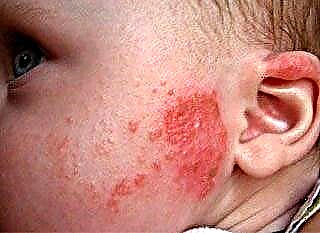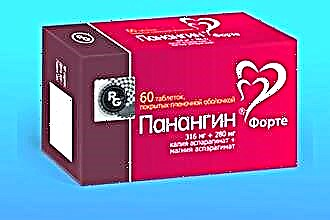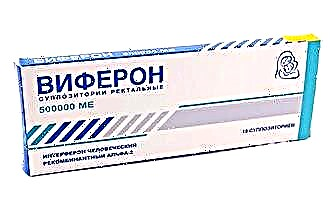Angina, or tonsillitis, is understood as inflammation of the lymphoid formations located in the oropharynx region - the tonsils. The most common disease provocateurs are infectious agents. Angina can be viral, bacterial, less often fungal in nature. Pain syndrome is a classic sign indicating the severity of the pathological process. Sometimes it is expressed so clearly that patients avoid participating in a conversation, refuse to eat and drink. These actions help prevent pain from getting worse, but not completely eliminate it. How to relieve sore throat with angina? What medications or treatments can help relieve the condition?
Aids
 Typical or commonplace tonsillitis is accompanied by pain of varying degrees of intensity. This significantly reduces the patient's quality of life and forces them to resort to various measures to get rid of unpleasant sensations - for example, the use of thermal procedures. In the absence of certainty about the diagnosis, such treatment can be not only useless, but also dangerous. Meanwhile, there are many remedies designed directly to eliminate sore throat. These include:
Typical or commonplace tonsillitis is accompanied by pain of varying degrees of intensity. This significantly reduces the patient's quality of life and forces them to resort to various measures to get rid of unpleasant sensations - for example, the use of thermal procedures. In the absence of certainty about the diagnosis, such treatment can be not only useless, but also dangerous. Meanwhile, there are many remedies designed directly to eliminate sore throat. These include:
- Local anesthetics.
- Local non-steroidal anti-inflammatory drugs.
They come in various dosage forms:
- lozenges;
- lozenges for sucking;
- sprays for irrigation of the mucous membrane;
- solutions for gargling.
The use of any of the above drugs is a local therapy option. It should be understood that achieving an analgesic (analgesic) effect does not mean a cure. Pain is not only an unpleasant experience, but also an important sign of the presence of a pathological process. However, it is a symptom, not a separate pathology.
Treatment with local analgesics is symptomatic only. It cannot affect the immediate cause of the disease.
Angina cannot and should not be treated with pain relievers alone. Without timely comprehensive treatment, the patient risks facing serious complications.
Local anesthetics and local non-steroidal anti-inflammatory drugs (topical NSAIDs) are used to relieve sore throat. The second of these drugs can not only remove unpleasant painful sensations, but also affect the course of the inflammatory process. Local NSAIDs are part of the symptomatic and pathogenetic therapy regimen.
Analgesics
 Pain with angina is a typical manifestation of the pathological process, therefore, within the framework of local therapy, a doctor can prescribe a variety of medications with an analgesic effect. Most often, they are produced in combined forms, that is, they contain not only an analgesic drug, but also an antiseptic that acts on disease-causing agents. In addition, anti-inflammatory components are usually present in the composition. Since there are a large number of drug options, it is advisable to describe the most common ones. The list can be presented in the table:
Pain with angina is a typical manifestation of the pathological process, therefore, within the framework of local therapy, a doctor can prescribe a variety of medications with an analgesic effect. Most often, they are produced in combined forms, that is, they contain not only an analgesic drug, but also an antiseptic that acts on disease-causing agents. In addition, anti-inflammatory components are usually present in the composition. Since there are a large number of drug options, it is advisable to describe the most common ones. The list can be presented in the table:
| Active substance | Pharmacotherapeutic group | Analgesic action | Application features | Examples of drugs |
| Benzocaine | Local anesthetic. | Reduces irritation and pain, the effect occurs 1 minute after application and lasts up to 3 hours. Allows you to relieve swelling. | It is not allowed to use during pregnancy and lactation, the presence of allergies. | Stopangin 2AFORTE |
| Lidocaine | Local anesthetic. | Reduces irritation and pain, the effect occurs 1 minute after application and lasts up to 3 hours. Allows you to relieve swelling. | During pregnancy, lactation and children, it is used only on the recommendation and under the supervision of a physician. | Strepsils Plus, Teraflu LAR Menthol |
| Benzydamine | Local NSAIDs. | It inhibits the synthesis of prostaglandins, has an analgesic and anti-inflammatory effect. | Available in the form of tablets, spray and rinse solution. Hypersensitivity to acetylsalicylic acid, the presence of bronchial asthma, gastrointestinal diseases are important. Prescribed by a doctor. | Oralsept spray, Tantum Verde |
| Flurbiprofen | Local NSAIDs. | It inhibits the synthesis of prostaglandins, has an analgesic and anti-inflammatory effect. | Available in the form of tablets, spray and rinse solution. Prescribed by a doctor. | Strepsils Intensive |
| Chlorobutanol | Local antiseptic with local anesthetic effect. | Has a moderate analgesic effect. | With caution in childhood, pregnancy, lactation. Contraindicated in the presence of allergies. | Cameton |
| Hexetidine | Local antiseptic with local anesthetic effect. | Has a moderate analgesic effect. | With caution in childhood, pregnancy, lactation. Contraindicated in the presence of allergies. | Hexoral, MaxicoldLor, Stomatidin |
| Levomenthol | A local irritant with mild antiseptic properties. | It has a local irritating effect, analgesia is achieved through a distracting effect. | It can provoke allergic reactions, so it is used with caution. | Cameton |
How to relieve sore throat with sore throat? For this purpose, the drugs described in the table are used. Local anesthetics give an almost instant effect - for this they should be used in the form of tablets, lozenges and sprays. It is unacceptable to combine different active ingredients at the same time, if the combination of drugs is not recommended by a doctor. It is also worth remembering that local analgesics are taken no longer than 3 days (unless the doctor advised otherwise) in a standard amount (for tablet preparations, usually 5 or 6 lozenges).
Tablets and lozenges should be sucked in the mouth for as long as possible. They should not be bitten or swallowed. Means in tablet form are intended for prolonged contact of the substance with the mucous membrane - this prolongs the effect of analgesia. In addition, during resorption, the patient constantly swallows saliva, thereby moisturizing the mucous membrane and removing pathological accumulations from its surface.
How to quickly relieve a sore throat? Before using the drug, it is advisable to rinse your mouth with warm boiled water. All drugs with an analgesic effect (sprays, lozenges, solutions, etc.) are used only after a meal. It is advisable to abstain from food and drink for an hour after the treatment of the mucous membrane. Sprays, as a rule, are not used by children under the age of 5 years - when irrigating the mucous membrane, there is a danger of laryngospasm.
The dosage of medications should be strictly controlled. Angina is a disease in which self-medication is unacceptable; even severe pain cannot be a reason for exceeding the permissible dose of analgesic drugs. If painful sensations are excruciating and cannot be eliminated with the help of local analgesics, you should immediately consult a doctor.
Pain and gargling
Angina is an indication for the treatment of affected areas by rinsing. Despite the possibility of using antiseptic solutions, it is also worth discussing the medicines available for preparation at home. They are successfully used in the treatment of infectious and inflammatory diseases of the oropharynx and are prescribed to patients of different ages. How to treat your throat?
- Saline solution.
- Camomile tea.
- Sage tea.
- A solution based on alcohol tincture of calendula.
- Rotokan, etc.
Saline solution is prepared using kitchen or sea salt. For infusions based on chamomile or sage, prepared plant materials are required. Alcohol tincture of calendula and Rotokan are dissolved in water in the required amount. Purpose, methods of preparation and use are described in other publications presented on the site.
In order for the throat to stop hurting with sore throat, a warm solution should be used at a temperature comfortable for the mucous membrane. Reducing the severity of pain is achieved by moisturizing, softening mucus and pus. It is possible to treat the mucous membrane with home solutions quite often - up to 8 times a day.
In addition to the moisturizing and anti-inflammatory effect, the procedure also allows you to cleanse the mucous membrane of irritating food debris, pathological accumulations - that is, it also has a hygienic function.
Patient actions
In the presence of pain, it is important to use not only drug therapy. Simple activities will help to quickly remove unpleasant sensations  and prolong the effect of the use of drugs:
and prolong the effect of the use of drugs:
- Compliance with a diet.
A patient diagnosed with tonsillitis should eat easily digestible food of a liquid and semi-liquid consistency, exclude spicy, too salty, crumbling dishes from the menu. It is undesirable to eat food that may contain hard particles with sharp edges (for example, fish with an abundance of bones). Alcohol is prohibited. The temperature of food and drinks is controlled - they must be warm.
- Sparing regime.
In order for the damaged areas to be restored without interference, the influence of irritating factors should be excluded. It is better for the patient to limit speaking activity, to avoid inhaling too cold, hot, dry air, as well as sudden changes in air temperature.
- Drinking regime.
You should consume a sufficient amount of liquid (water, tea, compotes) - this improves the general condition and allows you to count on better hydration of the mucous membranes. Frequent warm drinks are required.
At least temporary cessation of smoking is recommended due to the irritating effects of tobacco smoke.
It is necessary to adjust the humidity and temperature values in the room where the patient is most of the time. It is desirable that the humidity is in the range of 50–70%, and the temperature is 19–22 ° C. Inhalation of dry hot air aggravates the manifestations of the disease, including pain. Sometimes in the throat after a sore throat there is a feeling of perspiration, which disappears with the improvement of the microclimate parameters.
Sore throat pain in sore throat can be relieved with a variety of medications. However, it should be remembered that only the effect on the cause of the disease can completely eliminate the pain syndrome. To establish the correct diagnosis and selection of drugs, you should consult a doctor.



